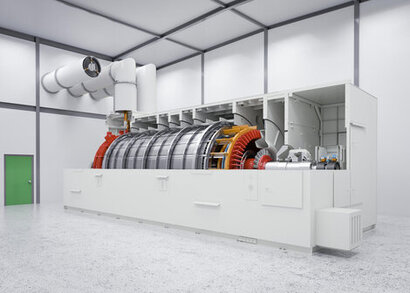
Earlier on Monday, Spain and parts of Portugal and France experienced a major power outage, causing widespread disruption across all three countries. The affected TSOs have not yet revealed what they believe caused the outage, with Spanish TSO Red Electrica saying restoration of full power may take “6-10 hours” in Spain.
Harreman said that while the outage was an “unprecedented event in modern energy markets”, the blackout occurring in Spain and Portugal is “not particularly surprising”, as “countries that are on the edge of, and more isolated from the synchronous European grid tend to more easily see grid frequency deviations”.
“In island systems like GB and Ireland, or peninsular systems like Italy and Spain, the AC synchronous interconnectivity with other countries is much lower, leading to a more vulnerable grid as flexibility and resilience has to mostly come from the inside” Mr Harreman added.
By contrast, a country like Germany is “surrounded by many other countries and connected with AC connections, in which assets operate that provide resilience to the grid frequency”, which needs to be kept at 50 Hz at all times to prevent blackout.
“Whenever there is a deviation due to a power plant outage… there is sufficient flexible capacity to ‘catch’ the frequency before it goes ‘out of bounds’” Mr Harreman said. “This buys time to bring up other generation capacity to fill the gaps or take other measures.”
Mr Harreman noted that a blackout of this scale has not been seen since the 2003 Great Italian blackout, or the Turkish blackout of 2015.
Synchronous power generation is the process where generators produce electricity at a constant speed so that their output frequency remains synchronised with the grid's frequency.
Energy markets remain a complex subject as they are affected by the underlying AC power physics, where through European cooperation the energy transition has taken great leaps, but also where some parts of the grid do not completely benefit from the scale of the European market completely and as it is not easy to add more AC interconnection into areas like Spain and Portugal, but also GB, Ireland, Italy and Denmark.
Portuguese grid operator REN said “extreme variations” in Spain's temperature caused the power failure, though Spanish TSO Red Electrica has so far given no reason for the outage.
“Grid disturbances can be ridden out to a degree in regular times but on this occasion, there was a lot of non-synchronous generation on the network which made it more vulnerable” added Phil Hewitt, director at Montel Analytics. “Grid operators need to invest in inertia technologies like synchronous condensers to support the drive for more renewables. Investment in fast acting balancing reserves such as batteries also provides extra resilience as we have seen in markets like GB and Ireland.”
For additional information:

